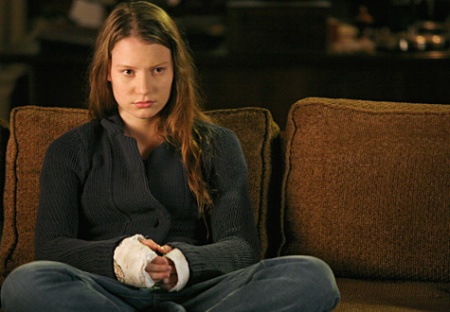Lately, I’ve been reading Dr. Drew’s latest book, “The Mirror Effect.” It addresses celebrity narcissism and the extreme behavior that goes along with it. Dr. Drew does a great job at highlighting what has become typical tabloid material – multiple stints in rehab, sex tapes, drug use, eating disorders, etc. – and explaining the self-destructive pathology behind it.
Dr. Drew references troubling celebrity behavior over and over throughout the book. As I read, I found that most responses to this self-destructiveness fit in one of three categories (depending on one’s own background):
3 responses to troubling celebrity behavior:
- Dr. Drew (empathetic / sympathetic)
- “Regular” society (intrigued)
- Relaters (Individuals with their own psychopathology)
The Dr. Drew Response
“As a group, however, [celebrities] often behaved in ways that unnerved and puzzled me.”
“…their behavior makes my heart ache for them.”
I’m coining this the Dr. Drew Response since I can’t think of any other word to better describes the reaction. His heart aches! He sees someone being self-destructive and he cares and feels their pain. It’s sympathy + knowledge + understanding + insight.
“Regular” society
“…this kind of behavior is portrayed as tragically glamorous, dramatically alluring, and, most alarmingly, normal and expected.”
A lot of people are interested in the self-destructive behavior of celebrities. It is a little bit of an obsession: Is Nicole Richie losing weight? Is Lindsay using? Is Amy Winehouse still alive? People want to know. The troubling behavior is intriguing and the press does a great job at, in essence, kicking celebrities when they’re down.
Relaters
“Witnessing such behavior also tends to provoke our own narcissistic impulses, causing us to feel envy, and tempting us to act like the celebrities we admire.”
“But for anyone who has experienced childhood trauma – the fundamental source of pathological narcissism – surrendering to such impulses can lead even mildly narcissistic people to spiral out of control with devastating results.”
Individuals with their own psychopathology or traumatic histories can be tempted (or even feel envious) by the self-destructive behavior of celebrities. There’s something triggering about it that makes these people want to engage in the same self-destructive behavior.
So there we go: In this world we have Dr. Drews, Regulars, and Relaters. I think that your response can change depending on the situation, and that it applies to anyone struggling – not just celebrities.
For example, I think about this girl who went to my college and was very obviously struggling with an eating disorder. “Regular” people would gossip about how sick she was. You’d hear the “I see her at the gym every single morning” and “I heard she eats a plate of broccoli for dinner” comments. Yes, it’s wrong and mean, but unfortunately that’s reality (at least on college campuses). Now, I was a Relater (struggling with an ED myself), so this girl kind of triggered me. I didn’t want to be that sick, but seeing her around campus would almost encourage my eating disorder; tempt me to cut corners, lose just 5 lb., eat a plate of broccoli for dinner, etc. That drove me CRAZY. I didn’t want to be a Relater – I wanted to be a Dr. Drew. I wanted to just empathize with her, wish she would get help, recognize how miserable she probably felt, and know how tough things were for her right now.
This is still a goal of mine: That Dr. Drew Response.



